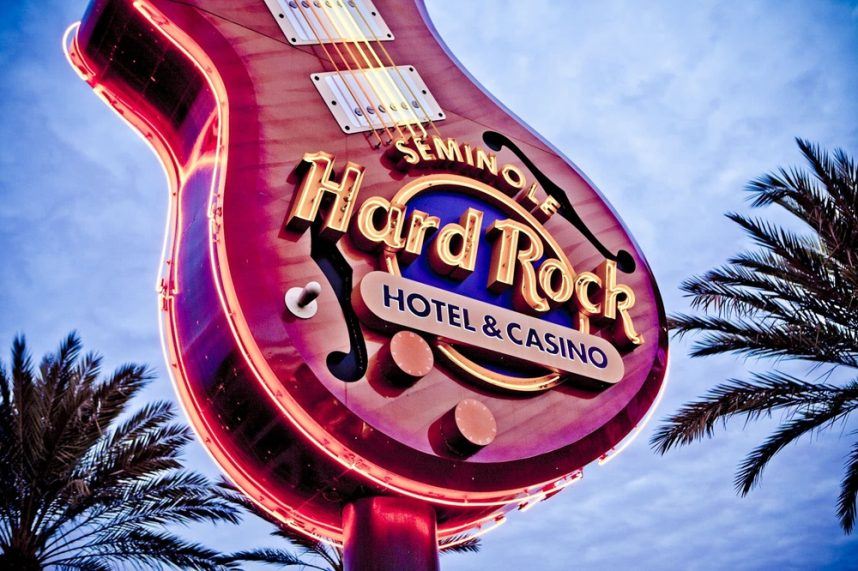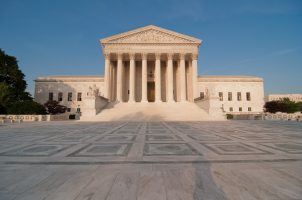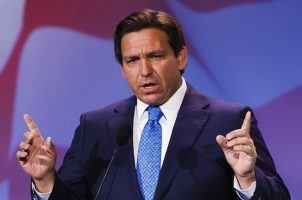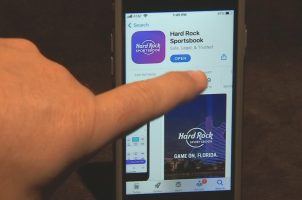US Supreme Court Asked to Torpedo Seminoles Sports Betting Deal
Posted on: February 14, 2024, 11:49h.
Last updated on: February 14, 2024, 12:09h.
Two Florida cardrooms have petitioned the U.S. Supreme Court to nullify the $2.5 billion gaming compact between the state and the Seminole Tribe. The deal handed the latter a monopoly on statewide mobile sports betting. Should SCOTUS take the case, its decision could shape the future of online sports betting in the U.S.

The operators, West Flagler Associates, and Bonita-Fort Myers Corp., contend the 2021 compact violates the Indian Gaming Regulatory Act (IGRA), which prohibits off-reservation tribal gaming.
The State of Florida has taken a broad reading of this statute. It argues that all mobile betting transactions occur on Seminole land because that’s where the Tribe’s internet servers are based.
DOI ‘Got It Wrong’
U.S. Interior Secretary Deb Haaland, whose Bureau of Indian Affairs must approve or deny state gaming compacts, allowed the deal to be approved under the provisions of IGRA in August 2021 – wrongly, according to the plaintiffs.
Lawyers for the card clubs wrote in their petition that there was nothing in federal law “that provides for gaming off Indian lands,” which the compact “clearly” did.
Instead, they claim, the point of the compact was to “provide a hook for dodging Florida’s constitutional requirement of a popular referendum to approve off-reservation sports betting.”
Since voters approved that constitutional amendment in 2018, matters of casino gaming expansion must be put to a public referendum for approval, which the compact wasn’t. That amendment was, ironically, backed by the Seminoles at the time.
Florida argues that sports betting isn’t a casino game, or at least, that the list of the “casino games” available in the state was “fixed” at the time and didn’t include sports betting.
Lawyers for the plaintiffs argue this line of reasoning allows Florida to “have its cake and eat it, too.”
They want SCOTUS to review a federal appellate court’s decision upholding the compact after it was initially declared null and void in the lower court.
Potential Repercussions
If the Supreme Court doesn’t take the case, it could have huge ramifications for online sports betting in other states where tribal mobile monopolies may be a viable option. These include California, where a future statewide mobile market would quickly become one of the biggest in the world.
This question is exceptionally important not just for the people of Florida, but for the nationwide precedent it will set for other state-tribal compacts if the Court of Appeals’ affirmative answer is left undisturbed — as an end-run not just around state-law prohibitions on gaming off tribal lands, but also around Congress’ limitation of IGRA’s federal imprimatur to gambling on tribal lands,” lawyers for the plaintiffs wrote.
In October 2023, SCOTUS declined to grant the plaintiffs’ request for a long-term stay on the appellate court ruling, leaving the Seminoles free to relaunch their sports betting app, which the Tribe did in November 2023.
Related News Articles
Florida Supreme Court Lets Sports Betting Continue
Florida Sports Betting: Tribe’s Foes Seek More Time in US Supreme Court
Gov. Ron DeSantis Defends Florida Sports Betting Compact
Online Sports Betting Now Open to All in Florida
Most Popular
LOST VEGAS: ‘Tony The Ant’ Spilotro’s Circus Circus Gift Shop
Casinos That Were Never Casinos
Texas Lottery Player Won $95M Jackpot by Buying 26M Tickets
Most Commented
-
End of the Line for Las Vegas Monorail
— April 5, 2024 — 90 Comments -
Mega Millions Reportedly Mulling Substantial Ticket Price Increase
— April 16, 2024 — 9 Comments -
Sinclair Broadcast Group Selling 7.91 Million Bally’s Shares
— April 12, 2024 — 5 Comments
















No comments yet